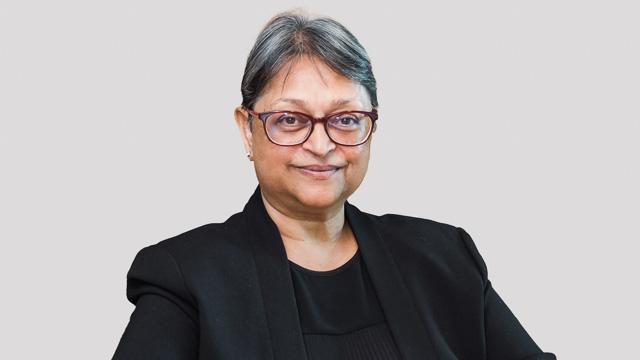On 4 April 2023, UNU will host “Preventing HIV in Women: Addressing Gender Inequities with Science”, a BIG IDEAS Dialogue with Professor Quarraisha Abdool Karim, Associate Scientific Director at the Centre for the AIDS Programme of Research in South Africa (CAPRISA). This event will be held via Zoom webinar at 18:00 JST (UTC+9).
Young women between the ages of 15 and 24 bear a disproportionate burden of HIV infection in sub-Saharan Africa. Reducing the high rates of HIV among this population is key to controlling the global HIV epidemic. But this reduction will depend on a combined approach that addresses gender-power disparities at the root of young women’s vulnerability and improves access to HIV prevention technologies and education.
Professor Abdool Karim will join UNU Senior Vice-Rector Sawako Shirahase to examine the gap between available HIV prevention technologies and where disease burden lies. The discussion will consider women-initiated HIV prevention technologies, such as oral pre-exposure prophylaxis, and why it is so important to raise awareness of, and access to, these technologies.
The conversation will also explore the urgent need for long-acting strategies that combine sexuality education, sexual reproductive health services, and efforts to confront the social and behavioural factors driving high rates of HIV infections in young women.
Please note this event will be in English; Japanese interpretation will not be provided. Advance registration by 3 April is required. Registrants will receive an email on the day of the event with a link to attend via Zoom webinar.
About the Speaker
Professor Quarraisha Abdool Karim is an infectious diseases epidemiologist whose seminal contributions spanning over three decades have shaped the global HIV prevention landscape, notably in prevention technologies for women. She demonstrated that ARVs prevent sexually transmitted HIV which laid the foundation for HIV pre-exposure prophylaxis (PrEP). Prof. Abdool Karim has provided insights in Africa and globally on the impact of COVID-19 on HIV and in the evaluation of COVID-19 vaccines and therapeutics.
Prof. Abdool Karim is President of The World Academy of Sciences (TWAS). She is an elected member of the National Academy of Medicine (USA), and Fellow of The World Academy of Science, Royal Society of South Africa, Academy of Science of South Africa and the African Academy of Science.
Her research contributions have been recognized nationally and internationally with over 30 honours including South Africa’s Order of Mapungubwe, 2014 TWAS-Lenovo Prize; the John Dirks Canada Gairdner Global Health Award; the 2020 Christophe Mérieux Prize; and the 4th Hideyo Noguchi Africa Prize for Medical Research. She is the Associate Scientific Director of CAPRISA; Professor in Clinical Epidemiology, Columbia University; and Pro-Vice Chancellor for African Health, University of KwaZulu-Natal, South Africa.
About the series
The BIG IDEAS: SDGs Dialogue Series introduces the people, projects, and organisations behind shared efforts to achieve the Sustainable Development Goals (SDGs). Each event features leading representatives and researchers from international organisations, UN agencies, and UNU institutes to stimulate discussion on sustainable development issues and initiatives. The events provide a unique opportunity for young researchers, graduate students, and civil society to become more familiar with SDG-related topics, ask questions, and learn how they can contribute to local and global SDG progress.


